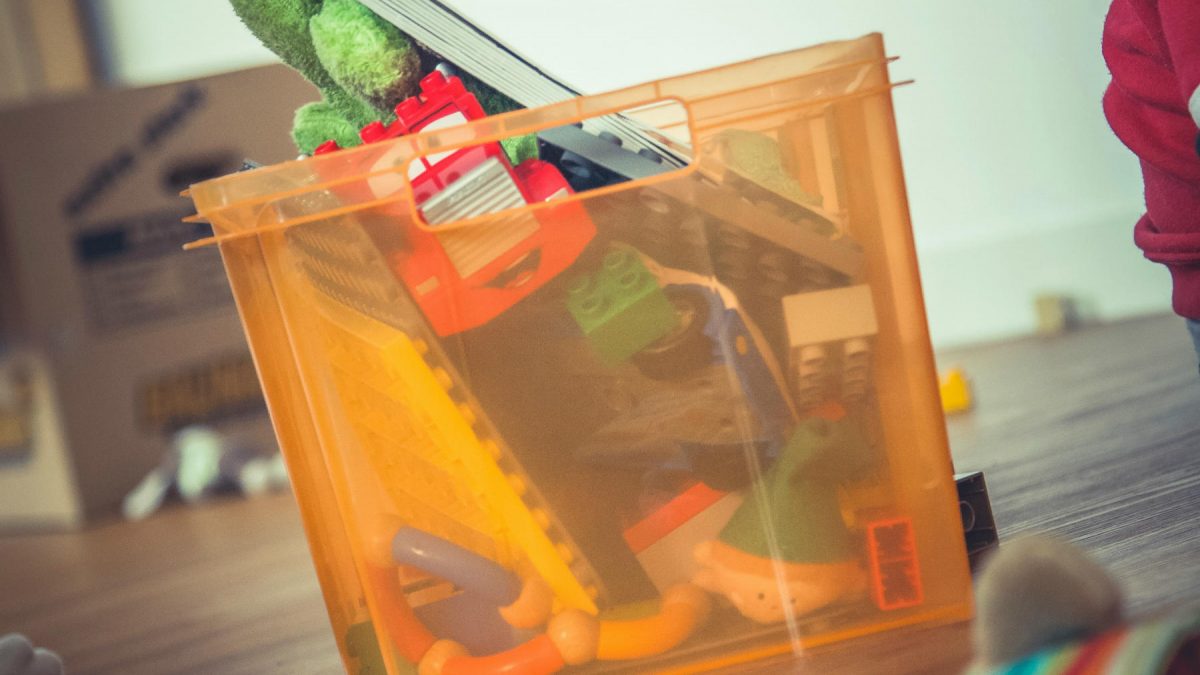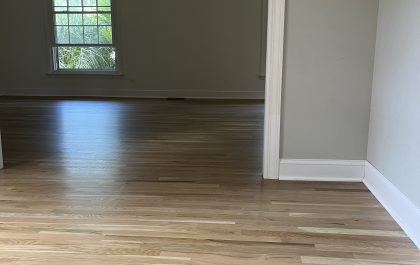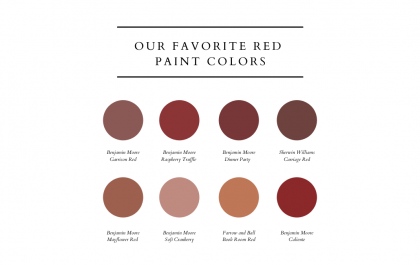I love a good home decor magazine. There’s a stack of Better Homes and Gardens on my living room side table. They’re great for ideas and inspiration…and I’ll be honest, they’re relaxing to browse through. It’s why they’re in every doctor’s office.
The pretty window boxes with actually thriving (not half-dead) flowers, shining floors, gleaming counters and of course the perfectly placed half-open book on an un-cluttered coffee table. Yes. I want to be there.
Sure, these magazines are inspirational. But if I’ve got a mess around me, then I’ve gotta stop myself.
I need frequent reminders that my house isn’t going to look like those magazines. The piles of unfolded laundry, endless dishes, overflowing amounts of toys scattered… these are just daily reminders of what living natural family life looks like.
Some days my house looks better than others…but at the end of many days, there’s a pretty good-sized mess for me to clean up.
Living in reality means that I have to be okay with my house not looking like those magazines. BUT, there are times when the clutter build-up around me gets to be too much.
Yesterday was one of those days.
It happened all too quickly…one minute it was (relatively) clean, the next, there were toys in every walkway, coming out of baskets, and strewn across the floor.
There was literally clutter everywhere.
My biggest clutter tendency is to keep too many toys. We just accumulate so many, especially because we have kids of different ages.
Some of the toys have been passed down, others were given generously by friends, and then the birthday and Christmas presents…this toy stuff gets to be a lot around here.
And of course, I’ve got a whole list of reasons for why we keep them all:
“But what if we have another kid?! She might like this!”
“They might want to play with this later on!”
Or my favorite excuse: “It’s educational!! So we definitely have to keep it!”
This mentality about keeping these toys was getting excessive. And more than anything, I don’t like spending excessive amounts of time cleaning and putting things away. I’d MUCH rather be doing other things with my time.
More than anything, the mess was causing me stress. It was time to make a change.
Feeling my stress level rising, I needed to do something quickly. But first I had to come to terms with the fact that I was rationalizing this problem too much. My many excuses were keeping me from confronting the real issue: I needed to be okay with parting with some stuff.
Once I realized that I was partially the problem for the excessive toy clutter, I was determined to tackle the issue head-on. No longer was the extra stuff going to ruin anymore of my evenings!
Keeping it simple was key.
To do this task efficiently, I set a timer for 15 minutes and started a box of toys to donate. I powered through this task.
When the timer stopped, I took a minute to scan the now-emptier room and definitely felt some relief. The few extra things I needed to put away were thankfully minimal, smaller items.
In this short amount of time, I ended up boxing up about 15 toys the kids didn’t really play with anymore.
It didn’t take me long, but even after doing just this little bit, I felt SO much better.
Interestingly, there’s scientific research to explain the relief I felt after decluttering.
Psychologists tell us that it’s healthy to go through the process of getting rid of what we really don’t need.
In Psychology Today, Susan Krauss Whitebourne explains that people don’t realize clutter is a common source of anxiety and can result in a lack of satisfaction with life. She says:
“When we think of cluttering, the first association many have is with the inside of a hoarder’s home. However, cluttering can simply involve the accumulation of more possessions than can fit into the available space. If you have a lifetime of memorabilia strewn around the rooms of a 25-room mansion, all will fit comfortably onto shelves and tables. It’s an entirely different matter if that same amount of stuff ends up in a cramped two-bedroom apartment.”
Krauss also touched on how the clutter affects our well being – it can make us feel bad about ourselves and hinder our ability to work effectively. “All of this clutter, physical and mental, can interrupt your flow — both your ability to move and your ability to think.”
In a similar analysis, Cornell University also published a study with results demonstrating that too much clutter leads to increased levels of stress. Needless to say, trying to manage extra stuff is exhausting, depressing and overwhelming.
Clutter negatively affects our mood and leaves us feeling frustrated and unhappy.
Taking the time to get rid of things may seem annoying or overwhelming at the time, but it will help you feel better about the space around you and make your living space feel more…well, livable!
Toys might not be the clutter issue in your house – maybe it’s the endless amounts of tupperware (with many missing lids), the chaotic junk drawer, too many stacked t-shirts, or the overflowing garage.
Regardless, holding on to too much is exhausting, requires extra cleaning, and keeps you from doing other things…like spending time with your family…or soaking in a long, hot bath (yes!).
Here are 5 quick ways to make a difference in your clutter.
- Set a timer for 15 minutes. Grab a box and separate between “needed” and “not needed.” For toys, if your child hasn’t played with it for 6 months, it’s time for storage or give it away. I didn’t need to do hours worth of decluttering to feel a whole lot better about the state of my house. Just doing a little bit made a difference.
- Choose 5 things from the mess to donate. It might not seem like a big difference when you have dozens, but I promise that you will notice the impact. And, it’s a great way to teach children the importance of giving.
- Group like items together. Keep separate bins for things like stuffed animals, games, blankets, and shoes. Try to keep “misc” bins to a bare minimum. If you have more than a few of these types of catch-all spots, go through and separate the items into smaller containers and stack them in a hall closet/laundry room/ or other easily accessible storage spot.
- Pick a drawer to go through. It might be the kitchen utensils, a bathroom drawer, or medicine cabinet. Get rid of some items in these frequent clutter-magnet spots! None of us need 15 spatulas!
- Tackle the shelving. Shelves and flat surfaces tend to be magnets for clutter. For bookshelves, try reorganizing the books by color or genre. If a book hasn’t been opened in quite a while, consider storing or donating it. Keep shelving decor minimalistic – try not to overcrowd these areas and let your favorite pieces get the attention.
How are you decluttering? Please share below!
Monica Aberle
Related posts
Recent Posts
Flooring Renovation: Asbestos Removal and Choosing the Perfect Floor Stain
We finally completed the renovation of our first-floor flooring, and like most renovations, it was a bit more involved than we initially hoped for. When we bought the house three years ago, we knew the…
Roses are red: 8 beautiful shades of a paint color you might not realize you love
Lots of us love blues, greens, whites, and greys. And if neutrals are more your thing, you might think you need to stay far away from a color like red. But we think it’s worth…





